Spanish artist Julio Anaya Cabanding has a deft hand, and he enjoys putting it to good (and unusual) use.
Cabanding recreates famous works of art and hangs the paintings in abandoned places: inside dilapidated buildings, layered over graffiti, and so on.
Though his recreations – of paintings by Monet, Vermeer, and others – look framed, Cabanding’s detailed process is entirely two-dimensional. By layering colors and shades, he’s able to create the illusion of frames. This, juxtaposed by the grittiness of abandoned environments, makes his work a feast for the eyes.
Keep scrolling to learn more about his process, and to see some of his edgiest displays.
Cabanding paints adjacent to a photo of the actual painting to ensure accuracy.
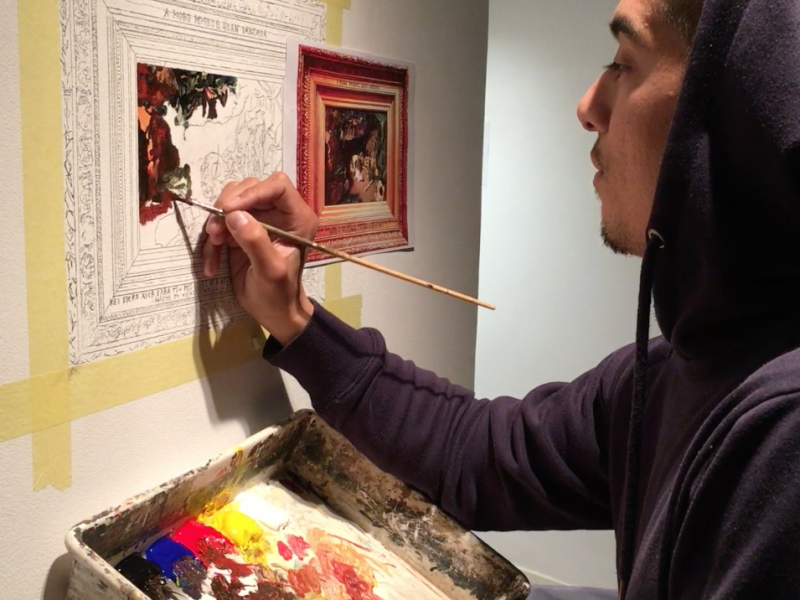
Cabanding uses acrylic paint, and often mixes his own colors to make sure his replica is on par with the original.
First he sketches an outline, and then he fills it all in.
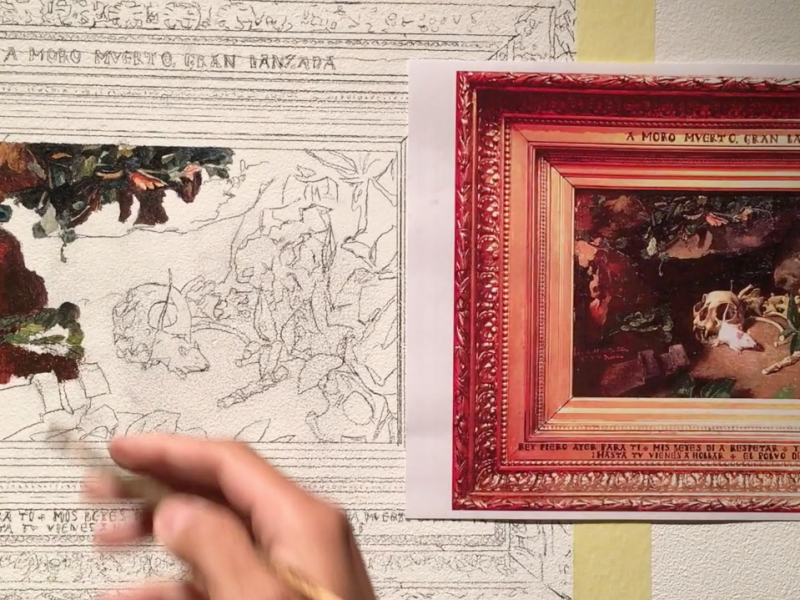
He's truly a master of recreations: you can barely tell which one is real and which is a replica.
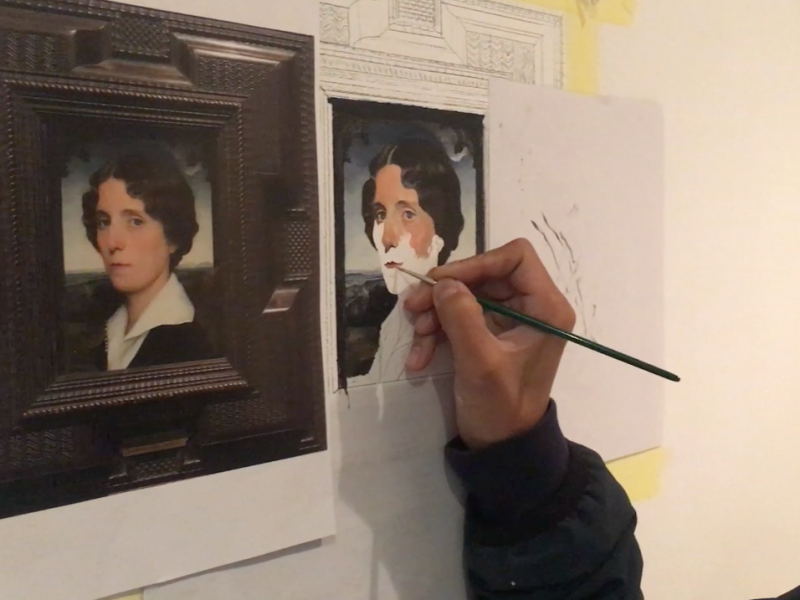
Here, Cabanding recreates "Head of Study" by Fernando Labrada Martin. Look closely at his sketch - you can see the frame is included.
The finished products are stunning.
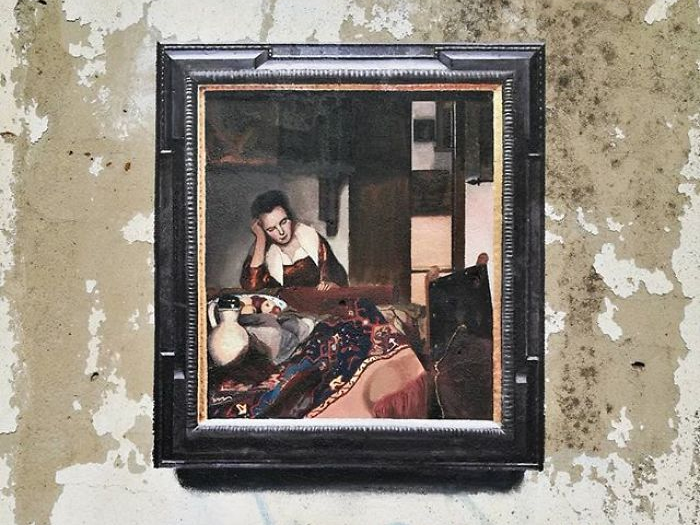
This is a replica of "A Maid Asleep" by Johannes Vermeer. The original hangs in The Metropolitan Museum of Art in New York City, and was painted around 1656.
Cabanding often hangs his replicas in places that match the vibe of the painting.
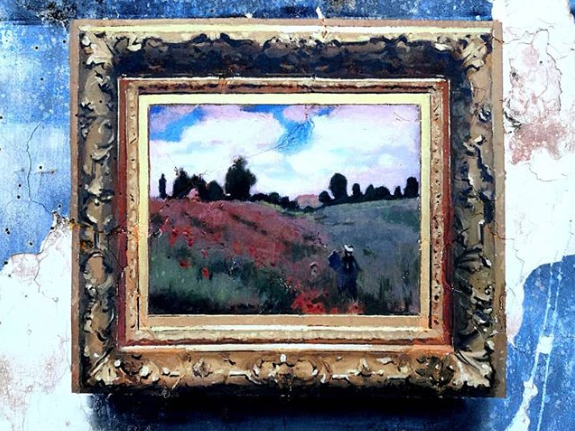
The blue sky of Cabanding's Monet replica is intensified by the blue wall on which it hangs.
Like this replica of a Jenaro Pérez Villaamil painting, which is enhanced by the dilapidated brick underneath it.
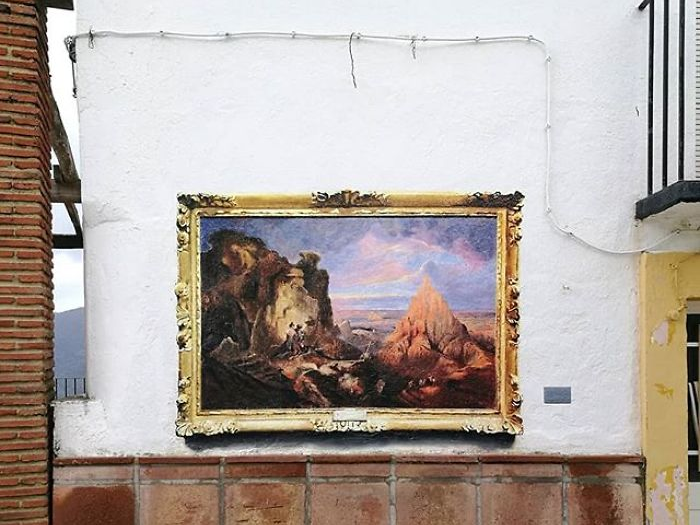
Sometimes, Cabanding hangs his replicas indoors.
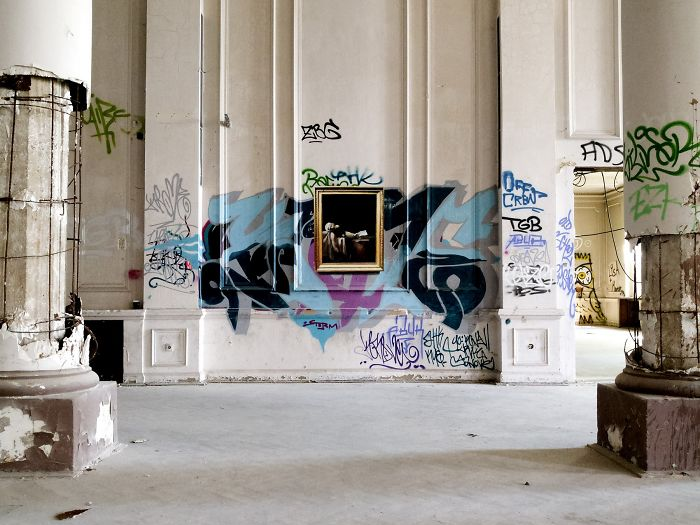
Inside a run-down building, on top of black and blue graffiti, you'll notice Cabanding's replica of "The Death of Marat" by Jacques-Louis David, first painted in 1793.
And other times, outdoors.
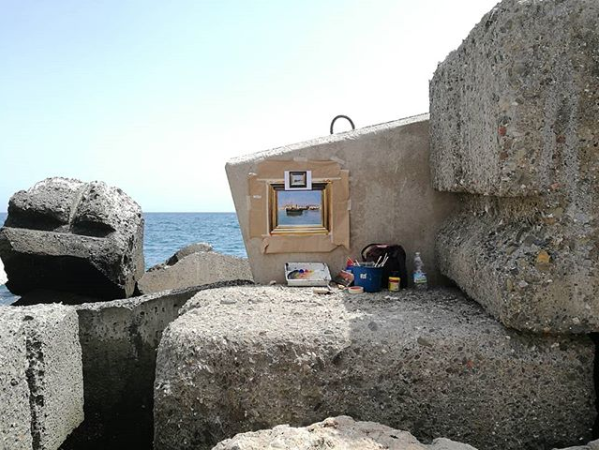
Cabanding sometimes paints on location for inspiration, as evidenced on his Instagram.
Even in the most desolate areas, a Gauguin can be found, all thanks to Cabanding's hard work.

The frame on this one looks totally realistic.
The stark contrast between "high" art and "lowly" places is exactly what Cabanding is going for.
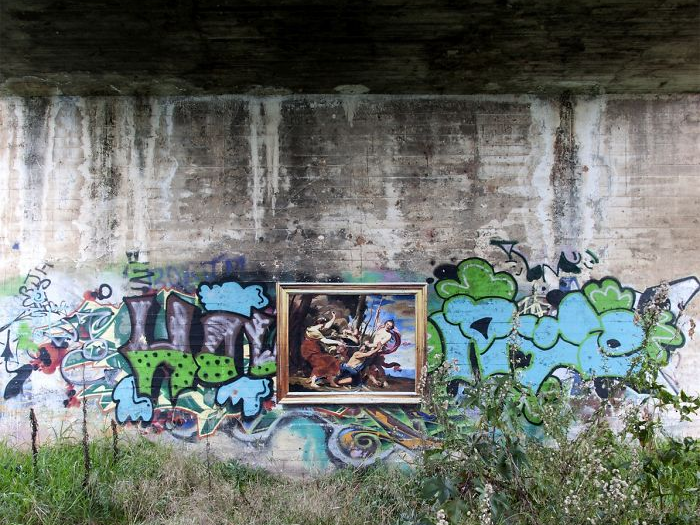
His mission is to remove artwork from "cold" museum settings in order to help us look at it in a different way.
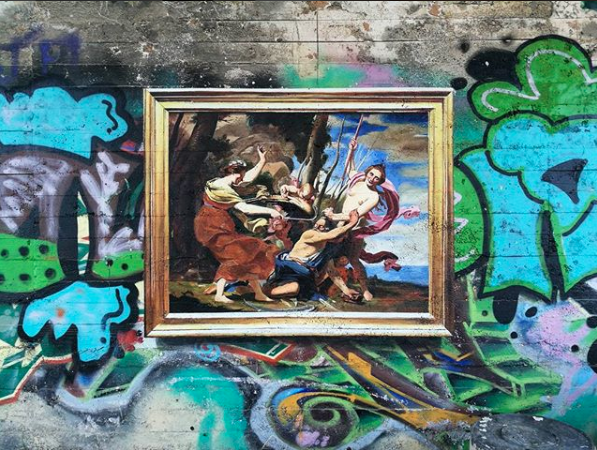
This is Cabanding's replica of "Time Defeated by Love, Beauty and Hope," originally by Simon Vouet in 1627.
So far, he's been successful.

This recreation of Pere Borrell del Caso's "Huyendo de la crítica" looks like it's jumping out of the wall.
His Instagram has almost 4,000 followers, and his artwork has been exhibited in Spain.
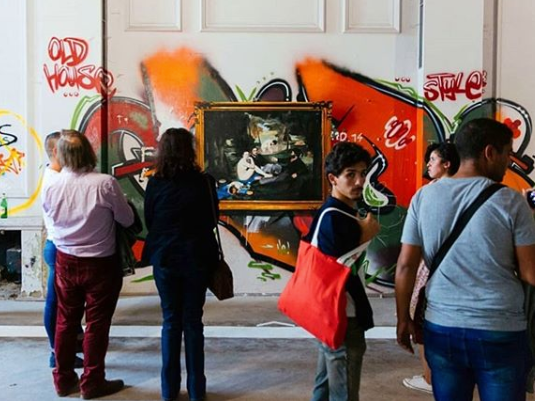
It goes to show that art is unlimited — and, as Cabanding has proved, so is the potential of spaces we might ordinarily dismiss.
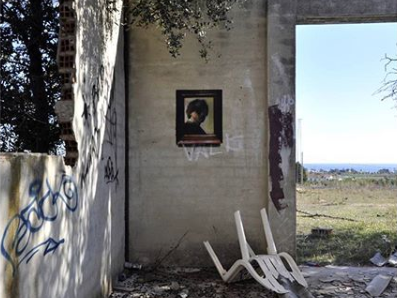
When Rembrandt painted this self-portrait, he probably never thought it would someday hang above a cracked lawn chair.
And for Cabanding, that means: mission accomplished.
Visit INSIDER's homepage for more.











